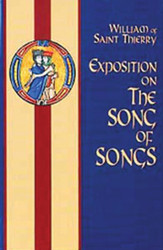Gregory the Great (+604) was a master of the art of exegesis. His interpretations are theologically profound, methodologically fascinating, and historically influential. Nowhere is this more clearly seen than in his exegesis of the Song of Songs. Gregory's interpretation of this popular Old Testament book not only owes much to Christian exegetes who preceded him, such as Origen, but also profoundly influenced later Western Latin exegetes, such as Bernard of Clairvaux.
This volume includes all that Gregory had to say on the Song of Songs: his Exposition on the Song of Songs, the florilegia compiled by Paterius (Gregory's secretary) and the Venerable Bede, and, finally, William of Saint Thierry's Excerpts from the Books of Blessed Gregory on the Song of Songs. It is now the key resource for reading and studying Gregory's interpretation of the Song of Songs.
Product Preview
| Format: | Paperback book |
|---|---|
| Product code: | LPCS244P |
| Dimensions: | 5½" x 8½" |
| Length: | 344 pages |
| Publisher: |
Liturgical Press
|
| ISBN: | 9780879072445 |
| 1-2 copies | $35.15 each |
|---|---|
| 3-9 copies | $33.55 each |
| 10-49 copies | $31.96 each |
| 50-99 copies | $31.16 each |
| 100+ copies | $29.96 each |
Praise
DelCogliano has produced a formidable volume on Gregory's complete exegesis on the Song, found both in the Exposition and in his other works. . . . He is an accomplished Latinist and has produced a translation that is smooth in prose, highly readable and enjoyable. In a few places where the texts pose challenges, the reasoning behind the translation is helpfully clarified in the footnotes. . . .A book should be appraised according to the purposes for which it has been proffered. Certanly DelCogliano's volume is a comprehensive and excellent sourcebook for the study of Gregory's exegesis on the Song of Songs. Students of patristic theology and monastic spirituality, particularly Cistercian spirituality, will assuredly appreciate its value too.
This new translation, noteworthy for both its accuracy and its sympathy for Gregory's endeavours, will make his thinking on The Song of Songs far better known. It is extremely welcome.
Anyone wanting to learn pre-modern exegesis by walking through a lively example of it should take firm hold of this book. The accessible translation pays due scholarly attention to the channels through which Gregory came to us (Paterius, Bede, William of St. Thierry). Those medieval fans of Gregory on the Song show us what a classic it became, and this should encourage us to see it in the same way. In the full Introduction we are given both a basic primer in figural reading and allegorizing which promoted contemplation, and also a platform for research (not least in footnotes which reflect the state of the question in patristic-medieval exegesis). Priceless!
This is the most exhaustive treatment in modern scholarship for the Commentary on the Song of Songs attributed to St. Gregory the Great and the legacy of that text for medieval exegetes. The careful translation and exhaustive commentary of this overlooked text is an important contribution to Gregorian scholarship and a boon to all those interested in Biblical interpretation during the Middle Ages.






![[Wisdom Commentary] Song of Songs [Wisdom Commentary] Song of Songs](https://cdn11.bigcommerce.com/s-86nw1qhj/images/stencil/190x250/products/4958/5424/cover-750__24090.1640221820.jpg?c=2)


